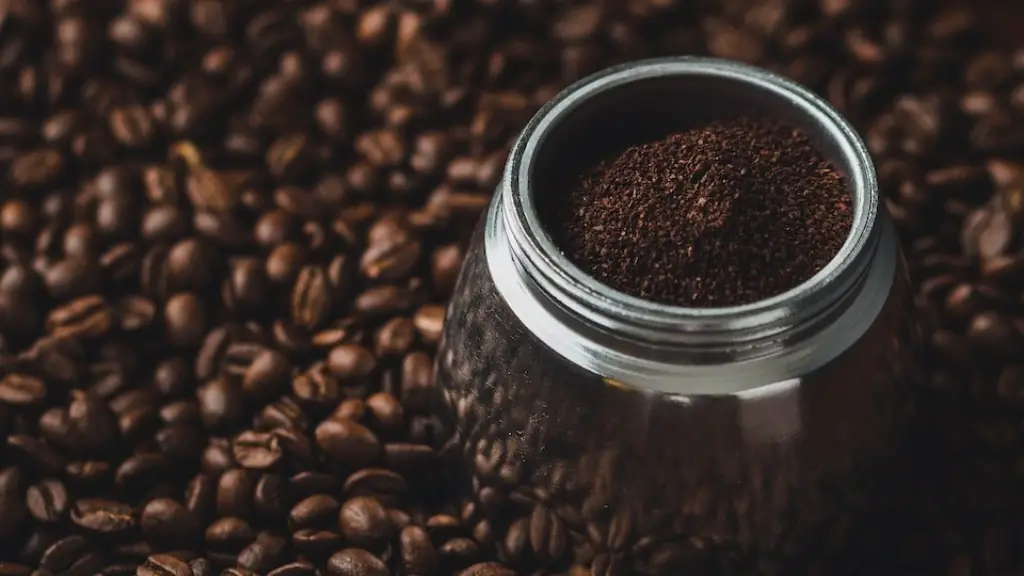Coffee has become an international phenomenon. From being something only adults enjoyed for its energizing buzz, to now being a favorite of both adults and children, coffee has taken on a special place in the hearts of many. But is drinking coffee really something that’s beneficial or should it be avoided? Here, we’ll dive into the facts and the opinion of experts to explore the different sides of the debate.
The Great Debate: Health Benefits or Detriments?
Do Coffee Beans Contain Healthful Compounds?
It’s no secret that some health benefits are associated with drinking coffee. According to experts, coffee is a source of antioxidants and anti-inflammatory compounds, which can help to protect against some of the long-term effects of aging. Furthermore, the consumption of coffee is correlated with a decreased risk of some chronic diseases, such as diabetes and Parkinson’s disease.
Coffee is also known to contain caffeine, a stimulant that can improve alertness and focus, which makes it popular among those who work long hours or need to stay focused for long periods of time. This can be beneficial in certain situations when an individual needs to be more productive.
Do Coffee Beans Pose Any Health Risks?
On the flip side, experts agree that drinking too much coffee can present some health risks. The caffeine found in coffee can disrupt healthy sleeping habits and overall sleep quality, as well as create anxiety in some individuals. Coffee can also increase the production of stomach acid, which can cause issues such as acid reflux and increased risk for ulcers. Drinking several cups of coffee a day can also lead to dehydration, which can cause headaches and other problems.
Furthermore, experts say that any health benefits associated with coffee are mainly found in plain, black coffee. Coffee-based drinks tend to be loaded with sugars and processed ingredients that negate any potential health benefits. These ingredients can lead to weight gain, as well as an increased risk of diabetes and other chronic health conditions.
A Word of Caution
Overall, experts agree that the majority of adults can enjoy a cup or two of plain black coffee a day without having to worry about any of the risks associated with drinking too much. However, it’s important to be mindful of the amount of caffeine you’re consuming. Too much caffeine can also cause a host of health issues, such as anxiety, irritability, and difficulty sleeping.
For those of us who like to drink coffee, moderation is key. Instead of having five cups of coffee a day, opting for two or three cups of plain black coffee can provide us with the energizing buzz of caffeine without having to worry about the detriments associated with excessive caffeine consumption.
Alternatives to Traditional Coffee
If you enjoy the taste of coffee but don’t want the jittery feeling that comes with drinking too much caffeine, there are some alternatives that offer the same taste and flavor as traditional coffee but with minimal caffeine content. Herbal coffee, for example, is made with roasted grains instead of coffee beans and offers a caffeine-free and stronger tasting coffee than traditional coffee.
Instant coffee is another popular coffee alternative. Although instant coffee contains the same amount of caffeine as traditional coffee, the brewing process removes some of the caffeine, making it a great option for those who can’t or prefer not to consume caffeine but enjoy the flavor of coffee.
Finally, there are also decaf coffee options. Decaffeinated coffee typically only contains 3mg of caffeine per cup, which means that it won’t interfere with normal sleeping patterns or cause any of the other negative effects associated with excessive caffeine consumption.
How Can We Control Our Caffeine Intake?
Maintaining an optimal caffeine intake might be difficult for some people, but with a few simple tips, it can be managed. The first step is to drink only enough coffee to meet your needs, not more. People differ in their individual caffeine sensitivity, so it’s important to find the amount that works for you.
In addition, drinking coffee at certain times of the day can help to control your caffeine intake. People who are especially sensitive to caffeine should avoid drinking coffee late in the day, as the effects may disrupt their sleep. Those who need an extra boost of energy should drink coffee in the morning or mid-afternoon.
Finally, combining coffee with healthier alternatives can also help. For example, adding milk or cream to coffee can help to reduce its acidity, while adding cinnamon or nutmeg can enhance its flavor without the need for added sugar.
Other Health Aspects Of Coffee
Aside from the physical effects of coffee, there are also some mental health effects. Studies have shown that drinking coffee can create a feeling of euphoria, which can be beneficial for those who need an extra boost of energy or motivation. Furthermore, the sense of community associated with coffee can also improve one’s mental well-being. Coffee shops are often bustling environments that encourage socialization and communication, which can help to reduce feelings of isolation and loneliness.
Finally, many people find comfort in the taste and smell of coffee. The aroma of a freshly brewed cup of coffee can be invigorating and create a sense of calm, while the taste of a well-made cup of coffee can be a form of comfort for many.
A Personal Perspective
I’ve been a lover of coffee since I was young. I remember drinking coffee with my parents, and I’ve continued to do so as an adult. For me, coffee is a source of comfort and enjoyment. I look forward to holding my favorite mug and sipping on my daily cup of coffee.
However, I’m also conscious of the potential health risks associated with drinking too much coffee. I’m careful to limit my intake to two cups a day and use the healthier alternatives mentioned above. I also make sure that I don’t drink coffee too late in the day, which helps to ensure that I get a good night’s rest.
Long-Term Effects Of Coffee
The long-term effects of drinking coffee ultimately depend on the amount one drinks. Moderation is key when it comes to drinking coffee, and understanding your individual caffeine sensitivity is important to ensure that you’re not consuming too much. When consumed in moderation, coffee can provide several health benefits, while drinking too much can lead to several health detriments.
Prior to making any changes to your caffeine intake, it’s important to consult with your doctor or healthcare provider to ensure that you are making the best decision for your health.
Social Aspects Of Coffee
The social aspects of coffee can’t be overlooked. Coffee shops are often gathering spots for friends and family. Furthermore, coffee can be an ideal location for business meetings and social gatherings.
Because of the variety of options and flavors now available, coffee shops have become even more popular as a social gathering place. The key is to find coffee shops that meet your needs and expectations, whether it be for a quick coffee or a slow-paced conversation.
Whether one is looking for an energizing buzz or just a spot to enjoy the company of others, the combination of coffee, conversation, and community can’t be beat.
An Overview Of The Coffee Culture
One of the most interesting aspects of coffee culture is how it has evolved over the years. Starting out as simply a source of caffeine and breakfast for adults, coffee has now become a favorite for many people, regardless of age.
In some cultures, coffee is still considered to be an adult beverage and is consumed only in small amounts. In other places, coffee shops are filled with young people enjoying the atmosphere and socializing with each other. This goes to show how pervasive and varied the coffee culture is today.
In conclusion, it is safe to say that coffee has been accepted into our lives in many forms. Whether it’s an energy boost in the morning or a conversation starter in the evening, coffee is here to stay and has been embraced by cultures worldwide.





